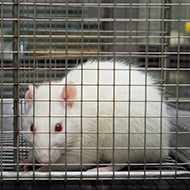
The debate will take place on Monday 7 February.
On Monday 7 February, MPs will debate e-petition 591775, which asks the Government to amend the Animal Welfare Act (2006) to consider laboratory animals.
Titled 'Change the law to include laboratory animals in the Animal Welfare Act', the petition gained over 110,000 signatures.
The petition states: “The Government needs to change the law so laboratory animals are included in the Animal Welfare Act.
“Laboratory animals are currently not protected by the Act and are therefore victims of 'unnecessary suffering'..
“A recent exposé showed harrowing footage of the factory farming of laboratory dogs in the UK. Experiments on such dogs, and other animals, are today widely reported to be entirely failing the search for human treatments and cures.
“Current science from multiple fields proves that animal-based research and testing is not viable. The Government should therefore change the law to include laboratory animals under the protection of the Animal Welfare Act, to prevent their unnecessary suffering.”
Martyn Day, a member of the Petitions Committee, will open the debate, and Kit Malthouse MP, Minister of State at the Home Office, will respond to the petition.
In a response to the petition, the Government said: “The Government believes animal use for research remains important and The Animals (Scientific Procedures) Act 1986 (ASPA) provides specific protection for these animals.
“The Government has no plans to amend the Animal Welfare Act (2006).
“We consider enabling the properly regulated use of animals in science is essential to improving the health and lives of humans and animals and to the safety and sustainability of our environment.
“Underpinning this is a strong commitment to a rigorous regulatory framework that fully implements the 3Rs and the continued development of non-animal alternatives.”
The full response can be read here.
Beginning at 4.30pm in Westminster Hall, the debate will last up to three hours, and will be available to view on both Parliament TV and YouTube.



 The latest
The latest